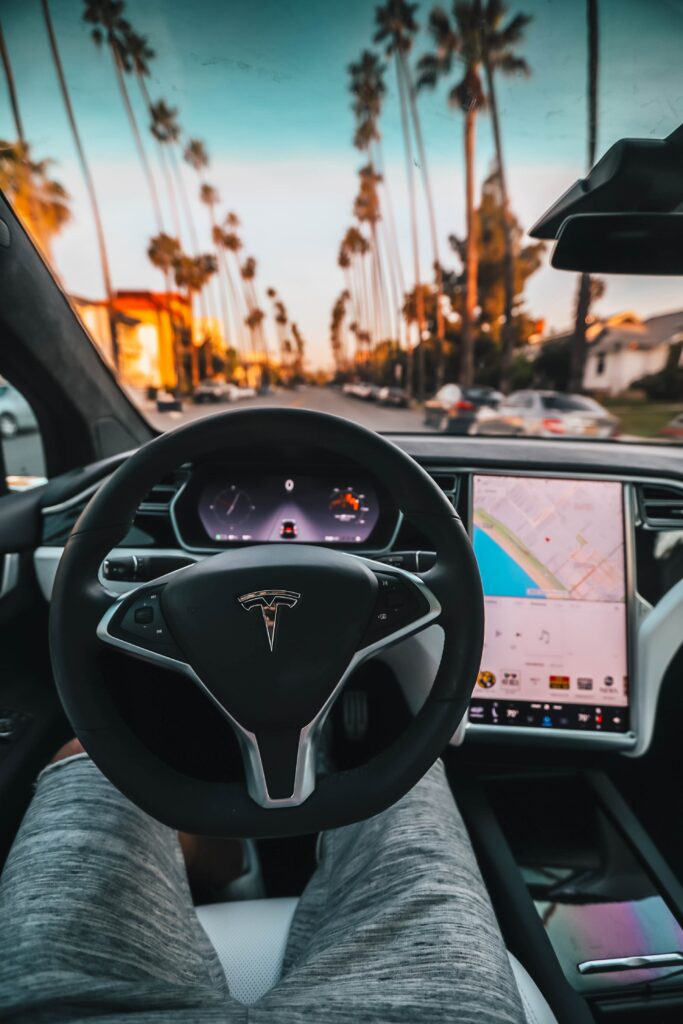Tags :
Advancing Autonomy Exploring the Frontiers of Self-Driving Vehicles
June 6, 2023

Self-driving vehicles, also known as autonomous cars, have emerged as a groundbreaking technology that has the potential to revolutionize transportation as we know it. These vehicles are capable of navigating and operating on roads without human intervention, relying on a combination of advanced sensors, artificial intelligence, and connectivity. Over the past decade, significant advancements have been made in the field of autonomous driving, with researchers and engineers continuously pushing the frontiers of this technology. In this article, we will delve into the latest developments in self-driving vehicles and explore the exciting possibilities that lie ahead.
- Enhanced Perception Systems:
One of the key challenges in autonomous driving is ensuring that vehicles can perceive and understand their environment accurately. Advancements in perception systems have played a vital role in improving the capabilities of self-driving cars. These systems utilize various sensors, such as lidar (light detection and ranging), radar, and computer vision, to gather data about the surrounding environment.
Lidar sensors emit laser beams that bounce off objects, allowing the vehicle to create a detailed 3D map of its surroundings. Radar sensors use radio waves to detect the distance, speed, and direction of objects. Computer vision algorithms process images captured by cameras mounted on the vehicle to identify and track objects, interpret road signs, and understand traffic signals. These perception systems enable vehicles to detect pedestrians, cyclists, and other vehicles, anticipate potential hazards, and navigate complex road scenarios more efficiently than ever before.
- Artificial Intelligence and Machine Learning:
Artificial intelligence (AI) and machine learning (ML) algorithms are the backbone of autonomous driving. Through sophisticated algorithms, self-driving vehicles can analyze vast amounts of data in real-time, making split-second decisions on navigation, trajectory planning, and collision avoidance. AI and ML enable autonomous cars to learn from their experiences and improve their driving performance over time.
One of the significant advancements in AI for self-driving vehicles is the development of deep learning techniques. Deep neural networks can process and extract meaningful information from complex sensor data, allowing vehicles to perceive and understand their environment more accurately. These neural networks are trained on massive datasets, consisting of real-world driving scenarios, to improve their ability to recognize objects, predict their behavior, and make informed decisions.
- Connectivity and V2X Communication:
Vehicle-to-everything (V2X) communication is another area that holds tremendous potential for self-driving cars. V2X refers to the exchange of information between vehicles and the surrounding infrastructure, such as traffic lights, road sensors, and other vehicles. By connecting vehicles to each other and to the infrastructure, autonomous vehicles can share real-time information, enhancing their situational awareness and decision-making capabilities.
V2X communication allows self-driving cars to anticipate traffic conditions, optimize routes, and coordinate with other vehicles. For example, if one vehicle detects a hazardous situation, such as a sudden stop or a road obstacle, it can send an alert to nearby vehicles, enabling them to adjust their behavior accordingly. This connectivity has the potential to improve the overall efficiency and safety of road transportation, reducing traffic congestion and minimizing the likelihood of accidents.
- Regulatory and Legal Frameworks:
As self-driving vehicles become more advanced and closer to widespread adoption, there is a growing need for robust regulatory and legal frameworks. Governments and regulatory bodies worldwide are actively working to develop guidelines and standards that ensure the safe deployment of autonomous vehicles on public roads. These frameworks address concerns related to liability, cybersecurity, data privacy, and the integration of self-driving cars into existing transportation systems.
Regulations often require autonomous vehicles to meet certain safety standards and undergo rigorous testing before being approved for commercial use. Additionally, there is a need to establish liability frameworks that define responsibility in case of accidents or malfunctions involving self-driving cars. Data privacy and cybersecurity are also critical considerations to protect the personal information and ensure the secure operation of autonomous vehicles.
- Ethical Considerations:
Autonomous driving also raises important ethical considerations. Self-driving vehicles may encounter situations where they have to make split-second decisions that could impact the safety of passengers, pedestrians, or other road users. For example, in a potential accident scenario, the vehicle may have to decide between two options that could result in different outcomes. Resolving ethical dilemmas and programming vehicles to make morally sound decisions remains a complex challenge that requires careful consideration and public discourse.
Addressing ethical considerations in autonomous driving involves developing frameworks that prioritize human safety while considering factors such as minimizing harm, following traffic rules, and preserving public trust. Public engagement and open discussions are necessary to establish societal consensus and ensure that the development and deployment of self-driving vehicles align with ethical principles and values.
The frontiers of self-driving vehicles are constantly expanding as researchers and engineers make significant strides in advancing the technology. Enhanced perception systems, artificial intelligence, connectivity, and regulatory frameworks are all crucial components driving the progress of autonomous driving. While there are still challenges to overcome, the potential benefits of self-driving vehicles, including improved road safety, reduced congestion, and increased accessibility, make them a promising avenue for the future of transportation.
By exploring these frontiers and addressing the associated challenges, we are paving the way for a new era of autonomous mobility. As self-driving technology continues to evolve, it is essential to strike a balance between innovation, safety, and ethical considerations. With continued research, development, and collaboration among industry stakeholders, self-driving vehicles have the potential to transform our transportation systems and shape a more efficient and sustainable future.
Technology Automotive
Share This :
Recent Post
Have Any Question?
If you have any questions or need further information regarding the content of my blog, I am here to help! Feel free to ask anything related to the topics discussed or seek clarification on any points that may require further elaboration. Your curiosity and engagement are highly valued, and I’ll do my best to provide prompt and informative responses. Don’t hesitate to reach out and make this blog an interactive space where we can exchange ideas and knowledge. Your questions are always welcome, so let’s dive deeper into the subject matter together!
Call Us
202-503-7199
240-413-3677
240-582-6827
Car audio, window tinting, alarm installation, remote start, key and computer programming, ADAS calibration, and electrical problem repairs. We guarantee high-quality workmanship and exceptional customer service. Call us now, and let’s upgrade your car together!

Give Us A Call
(240) 582-6827

Send Us A Message
lebronscaraudio@gmail.com
Lebron's Car Audio & Security
Follow Us on Social Media for More Information, Project Views, and Updates.
Quick Links
- Privacy Policy
- Terms and Conditions
- Support
Contact Info
News Letter
A newsletter about our website for car audio, security, and programming would be a great way to keep our customers informed and engaged. It could include updates on new products and services, promotions, and helpful tips and advice for car owners looking to upgrade their audio or security systems.
Accounting Firm Themes by Jegstudio
Copyright © 2022. All rights reserved.

